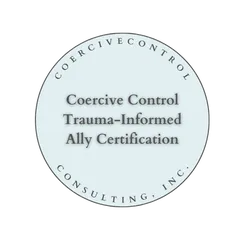Quick Contact
Please fill out the form below and our attorney will contact you.
Office Locations
Testimonials
Ratings & Reviews

- posted: Jul. 17, 2024
Many therapists would suggest that living together during the already stressful time of a divorce is generally not healthy, especially if there are children involved who are aware of the separation. The emotional strain, potential for conflict, and the complex dynamics of a dissolving relationship can create an environment that may not be conducive to anyone’s well-being. However, some couples find themselves in situations where living together is the most feasible option, at least temporarily. Here are some important considerations to weigh when deciding whether to live together during a divorce.
1. Emotional Strain: Divorce is inherently stressful, and sharing a living space with your soon-to-be ex-spouse can exacerbate emotional tensions. It's important to consider how this arrangement might affect your mental health and your ability to move forward.
2. Impact on Children: Children are highly perceptive, and living in a household where parents are in conflict can be particularly damaging. Even if parents strive to maintain a civil atmosphere, the underlying tension can create a stressful environment for kids.
3. Potential for Conflict: The close quarters can amplify conflicts and lead to frequent arguments, which can be detrimental to everyone involved. It’s crucial to assess whether you and your spouse can coexist peacefully and respectfully during this time.
Tips for Navigating Living Together During a Divorce
If living apart immediately isn't an option and you decide to stay under the same roof, consider these strategies to manage the situation more effectively:
1. Set Clear Boundaries: Establishing clear personal boundaries is vital. Define separate living spaces and respect each other’s privacy to minimize potential conflicts.
2. Communicate Openly: Keep communication lines open but focused on logistical and parenting matters. Avoid discussing emotional aspects of the divorce unless in a controlled environment, such as a mediator’s office, or with your collaborative divorce team.
3. Put the Children’s Needs First: Develop a structured co-parenting plan that includes clear schedules and responsibilities. Consistency can help provide stability for the children during this tumultuous time. Ensure that all discussions regarding the divorce occur outside of the children’s earshot.
4. Seek Professional Support: Engage the services of an individual therapist or divorce coach, in addition to a neutral mental health professional or coparenting counselor for you and your spouse to work with. Professional support can help navigate the emotional and practical complexities of living together while divorcing.
When to Consider Moving into Separate Households
Even with the best intentions and strategies, living together may not always be feasible, healthy or safe. If arguments and tensions are escalating and creating a toxic environment, it is in everyone’s best interest to live separately.* Physical distance can sometimes be necessary for emotional healing. If proximity to your spouse is hindering your ability to heal and move forward, separate living arrangements may be beneficial. Once you have the financial means to support two households, transitioning to separate living arrangements can reduce stress and provide a clearer path to independence for both parties.
While some couples may find themselves in situations where living together during a divorce is necessary, it’s important to carefully consider the emotional, practical, and financial implications of this arrangement. Establishing clear boundaries, seeking professional support, and prioritizing the well-being of all family members are essential steps in navigating this challenging time. However, recognizing when it’s time to move into separate households can also be crucial for fostering a healthier and more positive post-divorce future.
*If there is a history of domestic abuse or if one party feels unsafe, immediate separation is crucial to ensure safety and well-being. If you feel unsafe in your home, please call the National Domestic Violence Hotline, 1-800-799-7233.












